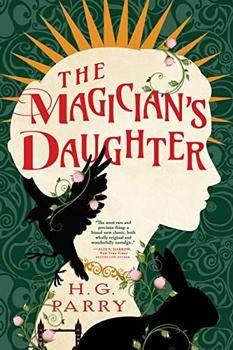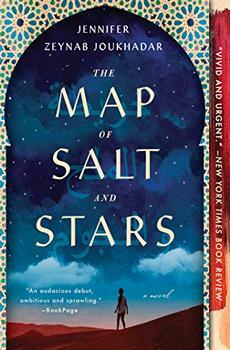Summary | Excerpt | Reading Guide | Reviews | Beyond the book | Read-Alikes | Genres & Themes | Author Bio

A chance meeting between mythical beings takes readers on a dazzling journey through cultures in turn-of-the-century New York.
In The Golem and the Jinni, a chance meeting between mythical beings takes readers on a dazzling journey through cultures in turn-of-the-century New York.
Chava is a golem, a creature made of clay, brought to life to by a disgraced rabbi who dabbles in dark Kabbalistic magic and dies at sea on the voyage from Poland. Chava is unmoored and adrift as the ship arrives in New York harbor in 1899.
Ahmad is a jinni, a being of fire born in the ancient Syrian desert, trapped in an old copper flask, and released in New York City, though still not entirely free.
Ahmad and Chava become unlikely friends and soul mates with a mystical connection. Marvelous and compulsively readable, Helene Wecker's debut novel The Golem and the Jinni weaves strands of Yiddish and Middle Eastern literature, historical fiction and magical fable, into a wondrously inventive and unforgettable tale.
I thought the author failed to take advantage of the culturally established traits of the golem and jinni, changing their natures to fit her narrative rather than sculpting the story to fit the characters. Some aspects of these creatures that are part of long-standing tradition were dropped altogether, others merely referenced in passing. Both creatures have long histories and strong connotations in their specific cultures, and that sense of history and heaviness of meaning were lacking. The end result was that the two felt far too human and not nearly "other" enough to me...continued
Full Review
 (720 words)
(720 words)
(Reviewed by Kim Kovacs).
Most Westerners are generally introduced to genies through the story of Aladdin and the Magic Lamp from The Book of One Thousand and One Nights (aka The Arabian Nights). In it, Aladdin is tricked into obtaining an old oil lamp in which a jinni has been imprisoned. Through various twists and turns in the story, the jinni is released from his confinement and eventually helps Aladdin obtain his greatest wishes: wealth, fame, and the love of a beautiful princess.
 The English word for these beings – genie – comes from the French word for spirit: génie (the result of The Book of One Thousand and One Nights being first published in Europe in French.) The Arabic word for jinni comes from janna, which means to conceal or ...
The English word for these beings – genie – comes from the French word for spirit: génie (the result of The Book of One Thousand and One Nights being first published in Europe in French.) The Arabic word for jinni comes from janna, which means to conceal or ...

If you liked The Golem and the Jinni, try these:

by H.G. Parry
Published 2023
In the early 1900s, a young woman is caught between two worlds in H. G. Parry's spellbinding tale of miracles, magic, and the adventure of a lifetime.

by Zeyn Joukhadar
Published 2019
This rich, moving, and lyrical debut novel is to Syria what The Kite Runner was to Afghanistan; the story of two girls living eight hundred years apart - a modern-day Syrian refugee seeking safety and a medieval adventurer apprenticed to a legendary mapmaker - places today's headlines in the sweep of history, where the pain of exile and the triumph...